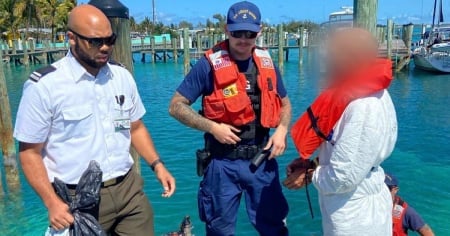Bahamas: Exploring Opportunities and Challenges in the Caribbean

The Bahamas is much more than a vacation destination. Its beautiful islands are home to vibrant communities, unique partnerships, and ongoing efforts to address both domestic and regional challenges. In this article, we'll explore recent developments highlighting the Bahamas' pivotal role in Caribbean affairs, focusing on healthcare initiatives and regional collaborations.
The Bahamas and Cuban Medical Missions
Healthcare partnerships have long played a significant part in the Bahamas' social infrastructure. One of the most notable collaborations is the hiring of Cuban doctors to work in Bahamian hospitals. The government of the Bahamas sees this agreement as a way to improve healthcare services for locals, providing both expertise and vital support to its hospitals.
However, this partnership has drawn international attention, especially from the United States. Recently, the Prime Minister of the Bahamas led a delegation to the U.S. to discuss two major issues: the ongoing hiring of Cuban medical professionals and the associated visa restrictions placed on officials linked to these medical missions. According to a detailed report, the Bahamas pays substantial fees for each Cuban doctor—yet a significant portion of these funds goes to the Cuban government rather than directly to the healthcare workers. Strict contractual clauses exist for many of these professionals, including limitations on freelance work and participation in political activities organized by the Cuban embassy.
For a comprehensive look into these developments and their broader implications, read The Bahamas and the U.S. will discuss the hiring of Cuban doctors and the restriction of visas for officials.
Regional Cooperation and Economic Partnerships
Beyond healthcare, the Bahamas continues to participate in regional initiatives and discussions that impact economic resilience and connectivity. Throughout the Caribbean, governments are seeking ways to bolster their economies, enhance climate resilience, and promote sustained development. For instance, regional leaders regularly discuss access to funding for major projects, from climate adaptation to skilled labor movement. These dialogues are central to maintaining stability and ensuring a better quality of life for Caribbean citizens, including those in the Bahamas.
One notable example involves Caribbean-wide efforts regarding free movement, labor agreements, and economic policies. The Bahamas engages alongside fellow island nations to advance shared interests, tackling challenges like rising insurance costs and the economic impacts of natural disasters. CARICOM's harmonized approach to labor and skills mobility exemplifies this collaborative spirit. To dive deeper into how the wider Caribbean addresses similar concerns, see Caribbean RoundUp – Caribbean Life.
Why These Issues Matter for the Bahamas
The Bahamas continues to strike a balance between immediate national needs and its role within the broader Caribbean community. Partnerships—such as those with Cuba for medical support—are vital but can also come with complex ethical, political, and economic questions. Similarly, the Bahamas' involvement in regional forums ensures it remains an influential voice as the Caribbean confronts challenges like climate change, economic shocks, and evolving international policies.
Conclusion: Navigating the Future
As the Bahamas moves forward, the nation must continue to adapt and build resilient partnerships. By promoting transparency and prioritizing citizens' well-being, the Bahamas can uphold its regional significance and enhance the quality of life for all Bahamians. Whether in healthcare or broader economic initiatives, collaborative approaches are key to facing future challenges together.